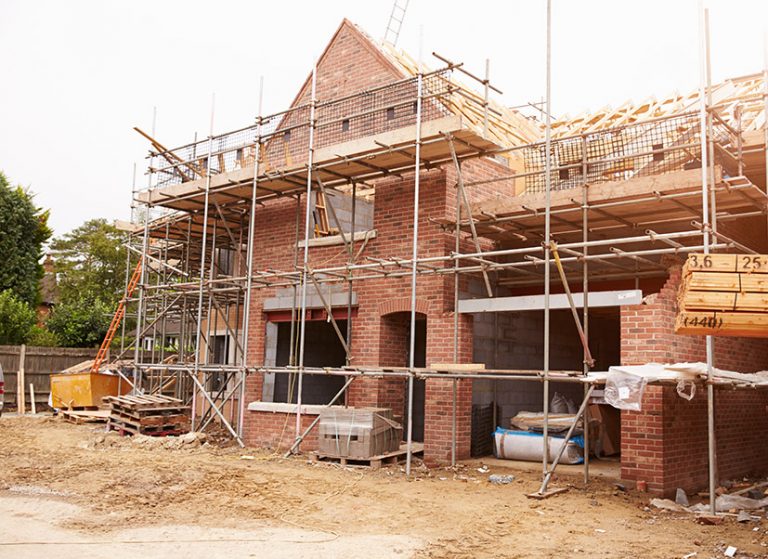Demand for East Midlands industrial and logistics space outstripping supply
Derby partners collaborate to enhance city centre after dark
A partnership between local businesses, community organisations, and civic leaders in Derby is transforming the city centre into a safer, more vibrant hub, particularly after dark. This collaborative effort has led to the city earning the esteemed Purple Flag accreditation, recognising high standards in managing the night-time economy.
The initiative involves a variety of stakeholders, including Marketing Derby, Derby’s Business Improvement Districts (BIDs), the University of Derby, Derbion, Derbyshire Police, Vaillant, and Derby Museums. Their combined work focuses on improving safety, accessibility, and cultural appeal in the evenings. The University of Derby has spearheaded student safety efforts, while Derbion has provided late-night shopping and events. The BIDs have ensured visible policing and coordinated city centre management.
Vaillant’s involvement in community initiatives highlights the importance of a united approach to civic responsibility. The collaborative work not only strengthens Derby’s night-time economy but also fosters a more inclusive and engaged city.
These efforts reflect a commitment to building a city where both residents and visitors feel welcome and secure, with the aim of further enhancing the evening experience for all.
Funding secured for critical Newark business route
- Improve traffic signals at Farndon roundabout to achieve smoother traffic flows in peak hours.
- Provide a new dual-carriageway bridge over the A1.
- Enlarge and partially signal Winthorpe roundabout to reduce congestion and improve journey reliability.
- Create a new grade separated junction at the Cattle Market roundabout.
Dunelm appoints new CEO
Businesses challenge BID levy despite legal threats
A dispute has arisen over the Business Improvement District (BID) levy in Spalding, with a group of business owners refusing to pay the charge. The BID, which was created following a local vote in July 2024, aims to fund town centre improvements and increase foot traffic. However, some businesses argue the vote was flawed due to missing ballots and have vowed not to pay the levy.
The levy is calculated based on a business’s rateable value, meaning larger businesses contribute more. Despite the backlash, South Holland District Council has defended the process, asserting the vote was legally conducted and in line with national guidelines.
Small business owners, including photographer Julian Wheeler and beautician Macie Harman, are among those opposing the BID. While Wheeler has expressed his intent to challenge the legality of the vote, Harman has opted to pay the levy to avoid further costs, but still plans to fight the BID’s validity.
The council has maintained that the ballot and levy collection process were fair and properly managed, with strict oversight from an electoral services provider and the returning officer. Recovery actions have been handled in accordance with national regulations, with the council standing firm on the legitimacy of the levy.
Homes plan near Derby’s ancient woodland faces rejection
A proposal for 150 new homes on the outskirts of Derby is facing significant opposition, primarily due to concerns over its potential impact on Chaddesden Wood, a designated ancient woodland. The land, spanning 20.3 acres, is currently under review by Derby City Council after being submitted by JGP Properties Ltd. The developer claims the scheme has been designed with environmental considerations in mind, aiming for a seamless integration with the surrounding landscape.
However, the proposal has garnered nearly 1,500 objections, including from prominent groups such as CPRE Derbyshire, the Woodland Trust, and the Friends of Chaddesden Wood. These groups express concerns about the loss of habitats, potential harm to wildlife, and the erosion of green wedge land north of the city. Chaddesden Wood is recognised as both a nature reserve and ancient woodland, home to veteran trees that are irreplaceable.
A council report highlights the already significant human activity within the woodland and warns that new housing would exacerbate pressure on the area. Additionally, the development would fragment the remaining Oakwood green wedge, isolating the woodland from the surrounding open countryside.
Despite the developer’s assertion that the project represents a respectful transition between urban and rural areas, the proposed development faces strong pushback. Planning officials are expected to recommend refusal when the application is discussed later this week.
Turnover rises 22% at Howes Percival
Could you take home Excellence in Design at the East Midlands Bricks Awards 2025? Enter now!

The East Midlands Bricks Awards 2025
What: The East Midlands Bricks Awards 2025 When: Thursday 2nd October (4.30pm – 7.30pm) Where: Derek Randall Suite, Trent Bridge Cricket Ground, Nottingham Keynote speaker: Councillor Nadine Peatfield – Leader of Derby City Council, Cabinet Member for City Centre, Regeneration, Strategy and Policy, and Deputy Mayor of the East Midlands Tickets: Available here Dress code: Standard business attire Thanks to our sponsors:











To be held at:

Peak Cluster carbon capture project to create thousands of jobs
A major carbon capture initiative is set to transform the cement and lime industries in the Peak District, with the creation of thousands of jobs across the Midlands and North West of England. The £59.6 million Peak Cluster project aims to capture carbon dioxide (CO2) from cement and lime factories in Derbyshire, Staffordshire, and the North West, transporting it via pipeline to be stored in depleted gas fields beneath the Irish Sea.
The project, described as the world’s largest cement decarbonisation effort, is expected to generate around 300 permanent jobs and support over 2,000 roles in cement and lime production. In addition, approximately 1,200 temporary positions will be created during the construction phase. Together with the Morecambe Net Zero carbon storage project, the initiatives are anticipated to support up to 13,000 jobs across the region.
Carbon capture and storage (CCS) technology, which prevents CO2 from entering the atmosphere, is seen as a vital part of the UK’s plan to achieve net-zero emissions. The Peak Cluster project will significantly reduce emissions from the cement and lime sectors, which are among the hardest to decarbonise due to their high CO2 output. The scheme is expected to prevent more than three million tonnes of CO2 from being released each year.
The government has committed £28.6 million from the National Wealth Fund (NWF), with additional funding from private sector partners, including Holcim, Tarmac, Breedon, and Progressive Energy. The initiative is part of the UK’s broader push to build a resilient carbon capture industry, with further investments in sectors such as hydrogen, electric vehicle supply chains, and steel.
The Peak Cluster project is also seen as a catalyst for the UK’s clean energy transition, driving job creation and economic growth in the industrial heartlands. It is expected to help modernise the cement and lime industries, positioning the UK as a global leader in carbon capture technology.












